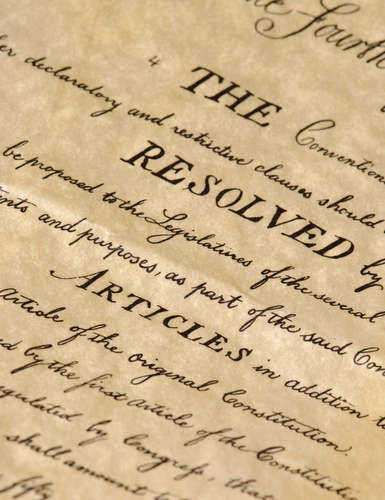Quick Blurb About Constitutional Law
Constitutional law is a foundational concept in the legal system of the United States and plays a crucial role in shaping many of the country's policies and practices. Constitutional law is the branch of law that focuses on the interpretation and application of the US Constitution and its amendments.
The US Constitution, adopted in 1787, established the fundamental framework for governing the nation. It created a federal system of government, separating powers between the national government and the states, and delineated the specific powers of the three branches of government. The Constitution also contains a Bill of Rights, which protects individual rights such as freedom of speech, religion, and the press, among others.
One of the central features of constitutional law is judicial review. This is the power of the courts to review laws and government actions and to determine whether they are constitutional. This power, which was established by the landmark case Marbury v. Madison in 1803, gives the courts the ability to strike down laws or executive orders that violate the Constitution.

Another important aspect of constitutional law is the doctrine of separation of powers, which ensures that no one branch of government has too much power. The Constitution gives specific powers to each branch of government, and each branch is designed to check and balance the power of the others. This system of checks and balances is intended to prevent abuses of power and ensure that the government operates in the best interests of the people.
The interpretation and application of the Constitution have been the subject of numerous court cases over the years. Court decisions have had a profound impact on American law and society, from the establishment of the right to privacy in the landmark case Griswold v. Connecticut to the recognition of same-sex marriage in Obergefell v. Hodges.
Constitutional law is an evolving field, constantly responding to shifting social, political, and legal realities. The interpretation of the Constitution is often subject to debate and disagreement, and different judges and justices may have different perspectives on what the Constitution means and how it should be applied.
In conclusion, constitutional law is a foundational concept in the legal system of the United States. It provides the framework for governing the nation and protects individual rights and freedoms. The doctrine of separation of powers and the system of checks and balances help to prevent abuses of power and ensure that the government operates in the best interests of the people. The interpretation and application of the Constitution have been the subject of numerous court cases and legal battles, and the role of constitutional law in shaping American policy and society will continue to be of critical importance in the years to come.
The general Constitutional laws of the United States were created early in the country's history in order to place the nation's Government on a centralized basis and protect the rights of its citizens. Thelegal doctrine of ultra vires, or "beyond the powers", holds that if a law that has been passed is found to improperly infringe on human rights, it can usually be struck down by being found unconstitutional. It will thus be made null and voidab initio, or "from the start," which means that the law's past use is retroactively made illegal.